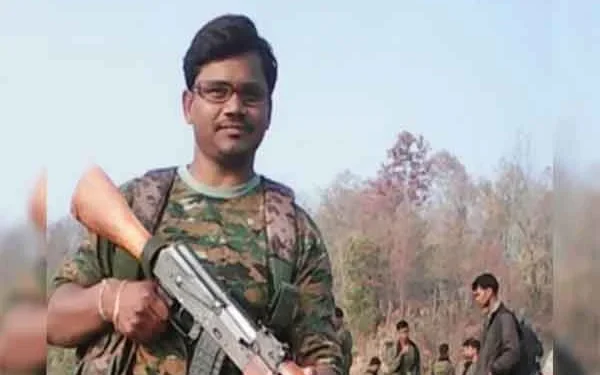Lagatar24 Desk
Palamu: With the death of Pappu Lohra alias Somed Lohra—JJMP chief and a notorious Maoist leader carrying a bounty of ₹15 lakh—in a recent encounter, a long era of fear in Jharkhand’s Palamu and Latehar districts has come to an end. But Lohra’s journey was unlike that of most insurgents. Once an ally of the police who helped neutralise top Maoists, he later emerged as one of the state’s biggest threats.
Early ties with Maoist outfits
A native of Nori Kone village in Latehar district, Pappu Lohra joined Maoist ranks at a young age, working alongside top commander Sanjay Yadav. The duo eventually broke away from the CPI (Maoist) to form the Jharkhand Jan Mukti Parishad (JJMP), with Yadav initially leading the outfit.
Rise to power through extortion
Lohra and Yadav reportedly extorted ₹35 lakh from three tendu leaf contractors, hiding the money in a roadside paan shop in Latehar. Following a dispute over the funds, Yadav was killed in Navagarh forest, and Lohra took control of the outfit and the hidden cash.
Once an asset to the police
In an unexpected turn, Pappu Lohra later aided police in anti-Naxal operations across Palamu, Latehar, and Chatra. One of the most notable operations was on June 8, 2015, in Bakoria (Satbarwa), where Maoist leader Dr. Anurag Yadav and others were killed. Though civilian deaths also occurred, the encounter was later validated in a state inquiry, despite political uproar in the Jharkhand Assembly.
Later turned police adversary
Lohra eventually became a major security threat himself. In September 2021, he was involved in a deadly gunfight in which Jharkhand Jaguar’s Deputy Commandant Rajesh Kumar was killed. This incident marked a turning point, making him a top target for law enforcement.
Wealth amassed from fear
According to sources, Lohra had two wives and alleged affairs with four other women. He reportedly deposited ₹1 crore in a Medininagar bank account under one wife’s name and purchased 10 acres of land in Manika (Latehar) under another woman’s name. Unverified reports suggest he also bought multiple properties, including flats and even a mall in Ranchi and Latehar.
Controlled tender operations in Latehar
Lohra had significant influence over public tenders in Latehar, especially in mining and government contracts. No contractor dared to submit bids without his gang’s permission. His men would intercept contractors at district offices and force them to speak with him directly. The intimidation ensured that only those favoured by Lohra were allowed to file tender documents, effectively monopolising local development works.







